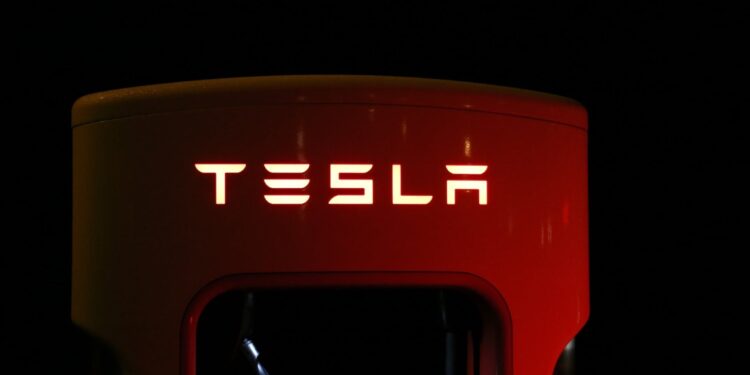Slumping sales, global trade uncertainties, and Elon Musk’s political controversies cast shadow over Tesla’s future growth
Tesla (TSLA) reported first-quarter earnings on Tuesday that fell well short of analyst expectations, as the electric vehicle (EV) maker grapples with declining demand, intensifying competition, and mounting concerns about its CEO Elon Musk’s political entanglements.
The company posted Q1 revenue of $19.34 billion, significantly missing Bloomberg’s estimate of $21.43 billion and marking a year-over-year decline from $21.3 billion. Adjusted earnings per share came in at just $0.27, falling short of the expected $0.44. Despite the earnings miss, Tesla stock was slightly higher in after-hours trading, buoyed by a reaffirmation of its production roadmap.
In a statement accompanying the results, Tesla confirmed that it remains on track to launch new, more affordable EVs in the first half of 2025, and reiterated that it expects volume production of its highly anticipated robotaxi fleet in 2026. These were key areas of focus for investors, especially after the company earlier this month posted its worst quarter for vehicle deliveries since Q2 2022.
Tesla blamed growing global trade tensions and unpredictable policy shifts for its recent struggles. “Uncertainty in the automotive and energy markets continues to increase as rapidly evolving trade policy adversely impacts the global supply chain and cost structure,” the company said. “This dynamic, along with changing political sentiment, could have a meaningful impact on demand for our products in the near term.”
In response, Tesla has removed its long-term growth forecast and said it will revisit its 2025 guidance in the next quarterly report. Gross margins for Q1 came in at 16.3%, just above the 16.1% estimate, but still far from historical highs.
The demand picture remains murky. Tesla delivered only 336,681 vehicles in Q1, far below the 390,342 expected, as competitors like China’s BYD continued to gain market share. Analysts point to consumer rushes to buy non-Tesla EVs ahead of the April 2 tariffs and worsening brand sentiment for Tesla as major contributors.
Tesla’s brand, once synonymous with innovation and sleek design, has taken a hit due to Musk’s outspoken political positions. His alignment with former President Donald Trump and right-wing figures in Europe has sparked protests at Tesla showrooms, as well as reported vandalism against Tesla vehicles. Registration data shows falling sales across Europe, suggesting the political fallout is having a real-world impact.
“Anyone that thinks the brand damage Musk has inflicted is not a real thing, spend some time speaking to car buyers in the US, Europe, and Asia,” said Dan Ives, a longtime Tesla bull and analyst at Wedbush Securities. “You will think differently after those discussions.”
In a note to clients, Ives called the situation a “Code Red” and urged Musk to step back from politics and recommit fully to Tesla leadership. “Musk needs to leave the government, take a major step back on DOGE, and get back to being CEO of Tesla full-time,” he wrote.
Despite these challenges, Ives maintained his Outperform rating and $315 price target on Tesla stock, suggesting that long-term upside remains if the company can execute on its 2025 product roadmap and Musk can stabilize the brand.
One potential catalyst came with a report from Politico indicating that Musk may soon reduce his involvement with Trump’s administration, a move that could help improve Tesla’s public image — and perhaps its sales — in key global markets.
You might like this article:Bitcoin Rallies to Near $90K as Decoupling from Tech Stocks Gains Traction











